Due to negative environmental impacts, human rights issues and consumer demand, the textile industry is continually developing ways become truly sustainable and environmentally responsible. Initiatives such as the development of eco-fabrics, effective recycling of fast fashion and closed loop supply chains are all being addressed by manufacturers and brands. One of the main areas where manufacturers and brands have been seeking to create a real impact on sustainability and in textiles is auditing.
Auditing is an essential process in a globalised textile industry. Auditing allows international standards to be developed, agreed upon and carried out to ensure continuity in quality of manufacture. Well developed and robust auditing procedures have the potential to create a truly sustainable textile industry. However, the cost of auditing is also a genuine issue for manufacturers and textile suppliers, creating a real barrier to potential sustainability. If textiles are to ever become truly sustainable, this needs to change.
Obstacles to effective auditing in the textile industry
There are many obstacles to the industry to achieving true sustainability in textile manufacture, including fast fashion demands, consumer attitudes and stresses with a global supply chain. However, the most significant issue creating a barrier for the industry is cost. Suppliers working for a major brand will be likely to be working with minimum profit margins, resulting in limited funds available for investment in sustainable technologies and training.
Initiatives such as Coshh, Reach, OekoTex and ZDHC have been implemented in order to achieve more sustainable processes within the textile industry. However, although these initiatives are admirable, they also significantly increase the costs on factories, with accreditation being one of the main areas of cost.
Accreditation as part of auditing in its current form has never been a truly cost effective solution for textile manufacturers or brands, but the situation has now become unsustainable. This is now impacting negatively the efficacy of sustainable developments in textiles. Retailers often sign up to multiple accreditation programs, resulting in multiple audits and therefore multiple costs for manufacturers. This continuing financial pressure placed on factories by retailers is potentially seriously damaging the ability to create sustainable supply chains and textile products.
The process of accreditation needs to be reviewed in order to make it effective as possible, allowing the industry to create textiles that are sustainable and environmentally accountable.
How can textile auditing costs be reduced for manufacturers?
It’s essential that the auditing system is robust, with qualified and competent auditors. Increasing the effectiveness of the auditing and accreditation procedures will ensure factories and manufacturers have increased funds to invest in sustainability.
There are two main solutions to solving this barrier of auditing costs for manufacturers in the future. Firstly, it would be most effective for retailers and brands to clearly decide on one quality, well trained and knowledgeable auditing body to carry out the auditing work, with the information on the factory performance being shared globally across all brands. This would lead to an agreed globally recognised performance level, reducing the need for multiple audits and importantly, multiple costs for factories.
Secondly, bringing the accreditation process in-house by the various organisations would be a further way to streamline this process. If a brand is seeking ZDHC accreditation for example, ZDHC would be dealt with directly. This streamlining would reduce costs for factories and retailers.
Sustainability needs to be taken seriously
Sustainability is the fastest growing sector of the textile industry with varying levels of professionalism and results. For the textile industry to become truly sustainable, it needs to to take the issue seriously. Addressing the financial impacts of multiple audits and accreditation by reducing the number of audits required is an important first step. This will give manufacturers, retailers and brands alike the financial ability to develop effective solutions to really address the environmental impact of textiles, creating a sustainable future.
Textile Consult is a management and training consultancy for textile manufacturers and retailers. Contact us today to see how we can make your business more effective and sustainable.


